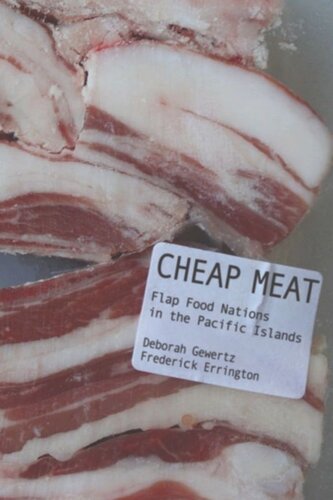

Most ebook files are in PDF format, so you can easily read them using various software such as Foxit Reader or directly on the Google Chrome browser.
Some ebook files are released by publishers in other formats such as .awz, .mobi, .epub, .fb2, etc. You may need to install specific software to read these formats on mobile/PC, such as Calibre.
Please read the tutorial at this link: https://ebookbell.com/faq
We offer FREE conversion to the popular formats you request; however, this may take some time. Therefore, right after payment, please email us, and we will try to provide the service as quickly as possible.
For some exceptional file formats or broken links (if any), please refrain from opening any disputes. Instead, email us first, and we will try to assist within a maximum of 6 hours.
EbookBell Team

4.1
90 reviewsCheap Meat follows the controversial trade in inexpensive fatty cuts of lamb or mutton, called "flaps," from the farms of New Zealand and Australia to their primary markets in the Pacific islands of Papua New Guinea, Tonga, and Fiji. Deborah Gewertz and Frederick Errington address the evolution of the meat trade itself along with the changing practices of exchange in Papua New Guinea. They show that flaps—which are taken from the animals’ bellies and are often 50 percent fat—are not mere market transactions but evidence of the social nature of nutrition policies, illustrating and reinforcing Pacific Islanders’ presumed second-class status relative to the white populations of Australia and New Zealand.